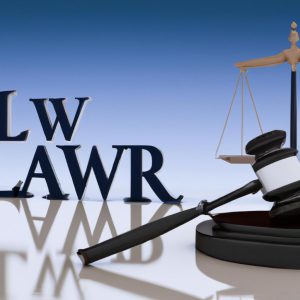In the realm of legal matters, few tasks are as daunting and often overlooked as end-of-life planning. As experienced lawyers at Morgan Legal Group in New York City, we understand the complexities and intricacies involved in estate planning, probate, elder law, Wills, and trusts. Our comprehensive end-of-life planning guide is designed to empower individuals to make informed decisions about their future and ensure their wishes are carried out with clarity and precision. Let us guide you through the process of securing your legacy and providing peace of mind for yourself and your loved ones.
Understanding End of Life Planning
When it comes to end of life planning, it is essential to take the time to carefully consider and make decisions that will ensure your wishes are carried out in the event of incapacitation or death. Planning for the future can provide peace of mind and alleviate the stress and burden on your loved ones during a difficult time.
- Make a comprehensive list of your assets and liabilities.
- Consider your healthcare preferences and create an advance directive.
- Designate beneficiaries for your retirement accounts and life insurance policies.
- Consult with an experienced attorney to create a will and establish trusts.
Furthermore, it is important to regularly review and update your end of life plan to reflect any significant life changes, such as marriage, divorce, or the birth of children or grandchildren. By taking proactive steps now, you can ensure that your legacy is preserved and your loved ones are provided for according to your wishes when the time comes.
| Key Points: |
|---|
| Review and update your end of life plan regularly. |
| Consult with an experienced attorney to create a comprehensive plan. |
Key Components of a Comprehensive End of Life Plan
When creating a comprehensive end of life plan, it is essential to consider all aspects of your personal and financial affairs. By addressing the following key components, you can ensure that your wishes are carried out and alleviate the burden on your loved ones during a difficult time:
- Advance Directives: Clearly outline your healthcare preferences and appoint a healthcare proxy to make decisions on your behalf if you are unable to do so.
- Will and Trust: Establish a legally binding document that dictates how your assets will be distributed and appoint a guardian for any minor children.
- Financial Power of Attorney: Designate someone to manage your financial affairs if you become incapacitated.
| Component | Importance |
|---|---|
| Advance Directives | Ensures your healthcare wishes are followed |
| Will and Trust | Ensures your assets are distributed according to your wishes |
| Financial Power of Attorney | Ensures someone can manage your financial affairs if needed |
Choosing the Right Legal Documents for Your End of Life Plan
When planning for the end of life, it is crucial to ensure that you have the right legal documents in place to protect your wishes and assets. At Morgan Legal Group, we understand the importance of having a comprehensive end of life plan. One of the key steps in this process is choosing the right legal documents that align with your specific needs and goals.
Whether you are considering a Will, Trust, Advance Directive, or Power of Attorney, our team of experienced attorneys can guide you through the process and help you make informed decisions. It is essential to carefully consider each document’s purpose and how it fits into your overall end of life plan. By working with our team, you can rest assured that your wishes will be legally protected and carried out according to your intentions.
Ensuring Your Wishes are Honored through End of Life Planning
When it comes to end of life planning, it is crucial to ensure that your wishes are honored and your assets are protected. Proper planning can provide peace of mind for you and your loved ones during what can be a difficult time. By taking the necessary steps now, you can lay the groundwork for a smooth transition and protect your legacy.
One of the key components of end of life planning is creating a comprehensive estate plan. This should include a Will, a trust, and other legal documents that outline how you want your assets to be distributed and who will make decisions on your behalf if you are unable to do so. It is important to review and update your estate plan regularly to ensure that it reflects your current wishes and circumstances. Consulting with an experienced attorney who specializes in estate planning, like the professionals at Morgan Legal Group in New York City, can help you navigate this complex process and ensure that your wishes are carried out.
Q&A
Q: What does end of life planning entail?
A: End of life planning involves making decisions about medical care, financial arrangements, and personal wishes for the end of life.
Q: Why is it important to create an end of life plan?
A: Creating an end of life plan ensures that your wishes are carried out and can relieve stress and burden on your loved ones during a difficult time.
Q: What are some key components of an end of life plan?
A: Key components of an end of life plan include a living will, healthcare power of attorney, financial plans, and funeral arrangements.
Q: How can one start the process of creating an end of life plan?
A: One can start the process of creating an end of life plan by discussing their wishes with loved ones, consulting with legal and financial professionals, and documenting their decisions in writing.
Q: What are some common misconceptions about end of life planning?
A: Some common misconceptions about end of life planning include thinking that it is only for older individuals or that it is morbid to discuss death. In reality, end of life planning is important for individuals of all ages and can provide peace of mind for both the individual and their loved ones.
In Retrospect
As you embark on the journey of end-of-life planning, remember that this process is a gift to both yourself and your loved ones. By taking the time to make decisions and document your wishes, you are ensuring that your final days are filled with peace and dignity. As you navigate the complexities of this important task, know that you are not alone. Seek support from professionals, friends, and family members to help guide you through this process. Remember, end-of-life planning is not about the end, but rather about creating a roadmap for the rest of your life. Embrace this opportunity to make your mark and leave a lasting legacy for those you hold dear.






